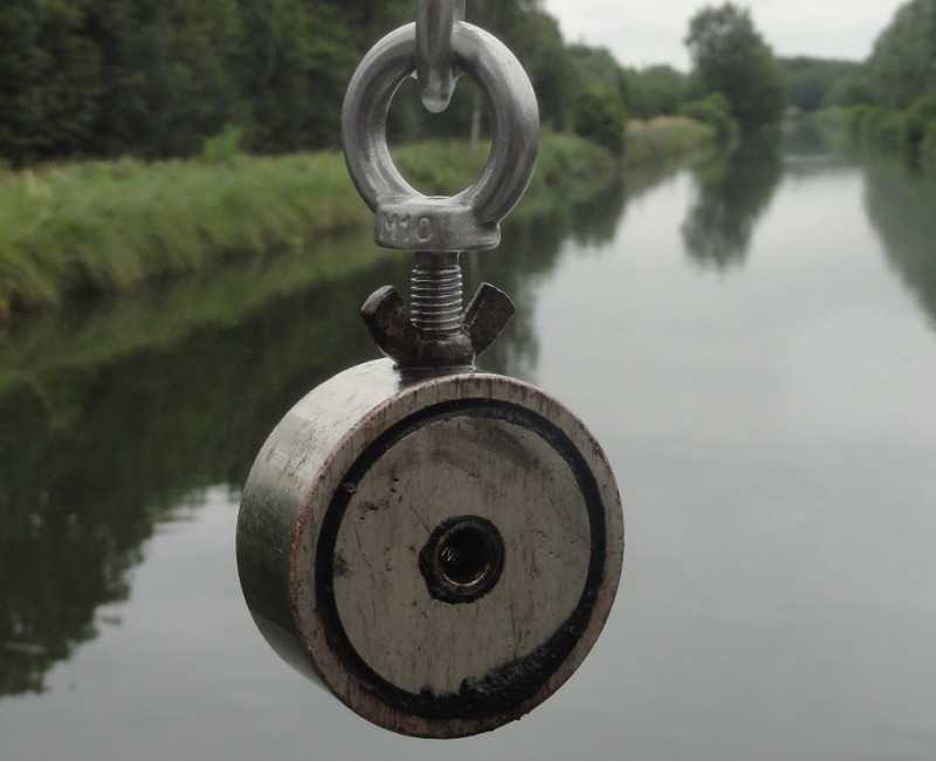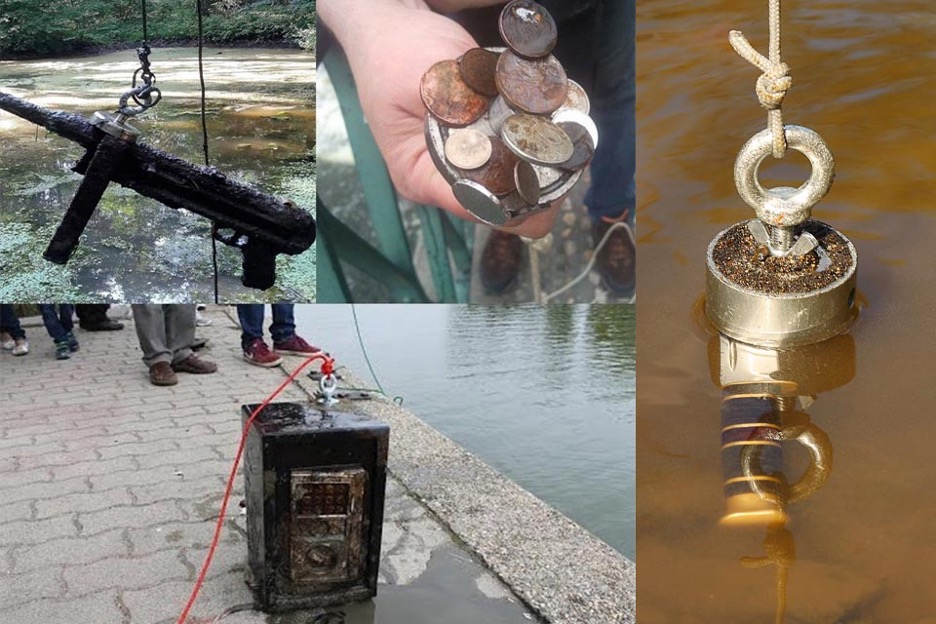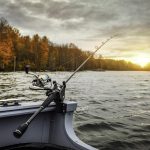The phrase “fishers of men” is a common one in the bible. Many Christians are aware of the record of how Jesus promised to make his disciples fishers of men.
We have mentioned this because this statement suggests that other things could be sought for other than fishes in the waters. Just like it is possible to fish for men as that phrase suggests, people have taken to fishing for metallic items of all kinds.
Considering that many items (past and present) are made using metals of all kinds and in varying degrees, there is a likelihood of finding something. This is especially true if the expedition is carried out in waters that are often used by people.
The whole concept is known as magnet fishing and there are many things to know about it. We suggest that you keep reading so that you understand what magnetic fishing is and its history. You would also learn about what environmentalists think about this activity if you keep reading.
What Is Magnet Fishing?
This is the search for objects with varying degrees of ferromagnetic composition in open waters. To make this happen, the major tool is a magnet. However, the kind used needs to have neodymium properties that are strong enough.
The strength is important as the found item underneath the water body has to be attracted despite possible resistance. It also needs to be hooked well to the tool to make it to the water surface and be recovered. In other words, the success of this exercise is largely dependent on the magnet fishing kit that is used. So, those interested in this activity have to get the right kit to achieve the desired result.
For the record, this activity could also be known as magnetic fishing. So, you should not get confused whichever way it is called.
The History Behind Magnet Fishing
Full-fledged activities such as this one are usually known to evolve from something. About how magnet fishing started, it is believed that the activities of boaters who lost objects like keys and other metallic objects set the ball in motion.
Magnets were used to recover these lost items that fell and ended up beneath the surface of the water. This explains how this activity started.
However, you should know that it is more than just ordinary magnets that are used now. There are special kits designed for this purpose as things are.
What Environmentalists Think Of Magnetic Fishing
As people are concerned about the state of the environment and the need to preserve nature for the good of all, environmentalists are divided as regards this activity. A school of thought thinks that it should be permitted given some of its environmental benefits while some do not share this view.
The other school of thought has some claims backing up why this activity should not be allowed. To help you understand the divide, let us start by explaining why some environmentalists believe in how an activity like this benefits the environment.
Reasons Why Some Environmentalists Support Magnetic Fishing
A couple of environmentalists have suggested that magnetic fishing benefits the environment in certain ways. Some of these ways include the following:
- Making Sure Water Ways Are Less Polluted
The idea of magnetic fishing is to search and recover items that have been lost or disposed of beneath the surface of water bodies. By recovering items that have metallic coating and properties at large, our waters will be less polluted. So, the concern of drinking and using water with hard metals and other toxic properties from metals is resolved to a certain extent. Frankly, this is the basis for defending this activity as some environmentalists have done.
- Protecting Marine Life
Large water bodies are usually adversely affected by inappropriate waste disposal methods. This is especially in locations where laws are not in place to stop this act. It is also the case where the set laws are not well implemented.
Some bodies of water are persistently polluted with heavy metals, and this affects marine life. An activity such as this does a bit to help. This is because metals that pollute the water bodies and affect marine life in the process are removed.
These are just some of the benefits of this activity to the environment and why some environmentalists are in support of it. For more on this subject, you can read this article.
Reasons Why Some Environmentalists Do Not Support Magnetic Fishing
It should be known that some environmentalists are strongly against activities such as magnetic fishing. Some of the reasons for this include the following:
- Magnet Effect On Marine Life
Frankly, there is still so much research that needs to be done to explain this. Be that as it may, there are sufficient studies (according to some environmentalists) suggesting that the use of magnets has adverse effects on certain kinds of fish. These environmentalists explain that the fish’s locomotive activity, as well as spatial distribution, can be adversely altered because of the use of magnets. As explained above, more research still needs to be done.
- The Making Of Magnets
This activity can indeed make the waters less polluted as explained above. This is considering how objects of all kinds that can leave behind hard metals and other toxins are removed. However, there is an irony. It is that even the making of magnets used for this purpose is not void of hard metals. As a result, the water can be polluted simply by using these kits. This is especially when the magnet begins to degrade. For example, the paint used as a coating would mix up with the water and pollute it in certain ways.
Conclusion
For those particular about doing what favors the environment, you can see how complicated the subject of magnet fishing is. It has some environmental benefits as well as some downsides. Judging from what the two major schools of thought think about this activity as explained here, you are advised to make informed decisions.










